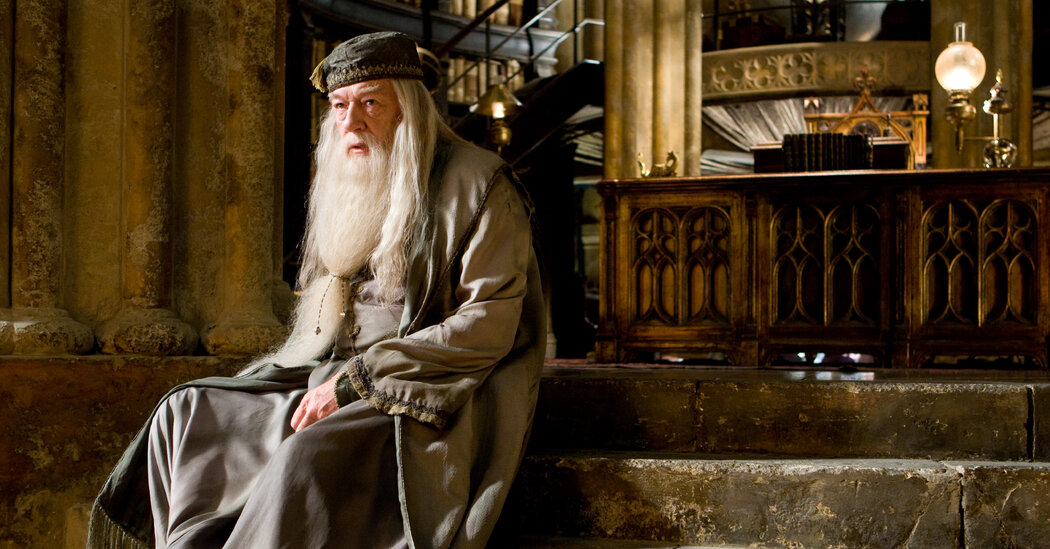His television roles varied from Inspector Maigret to Edward VII, Oscar Wilde to Winston Churchill. And in film he played characters as different as Albert Spica, the coarse and violent gangster in Peter Greenaway’s “The Cook, the Thief, His Wife & Her Lover,” and the benign Professor Dumbledore.
Mr. Gambon took over the role of Dumbledore, a central character in the Harry Potter saga, when Richard Harris, who had originated it, died in 2002. Reviewing “Harry Potter and the Prisoner of Azkaban,” in which he first appeared in the role, A.O. Scott of The New York Times wrote that the film, though noteworthy for its special effects, was also, like the two earlier films in the series, “anchored by top-of-the-line flesh-and-blood British acting,” and noted that “Michael Gambon, as the wise headmaster Albus Dumbledore, has gracefully stepped into Richard Harris’s conical hat and flowing robes.” Mr. Gambon continued to play Dumbledore through the final movie in the series, “Harry Potter and the Deathly Hallows: Part 2,” released in 2011.
For all the attention that role brought him, Mr. Gambon claimed not to see this or any other performance as a great accomplishment; he tended to answer interviewers who questioned him about acting by saying, “I just do it.” But in fact he prepared for his roles conscientiously. He would absorb a script, then use rehearsals to adapt and deepen his discoveries.
“I’m very physical,” he once said. “I want to know how the person looks, what his hair is like, the way he walks, the way he stands and sits, how he sounds, his rhythms, how he dresses, his shoes. The way your feet feel on the stage is important.” And slowly, very slowly, Mr. Gambon would edge toward what he felt was the core of a person and, he said, rely on intuition to bring him to life onstage.
Though he was no Method actor, Mr. Gambon did use memories when strong emotions were needed. He found it easy to cry onstage, he said, sometimes by thinking of the famous photograph of a naked Vietnamese girl running from a napalm attack. Acting, he said, was a compulsion, “a hard slog, heartache, misery — for moments of sheer joy.”


